Boasting a staggering 3600% ROI and reaching over 5 billion daily users, email marketing remains an undisputed champion in the digital landscape. While other channels vie for attention, email consistently delivers results with an average open rate of 21.33%. But to unlock the power of email, you need the right software that will automate your campaigns, personalize your messages, and help your clients build lasting relationships with their audience.
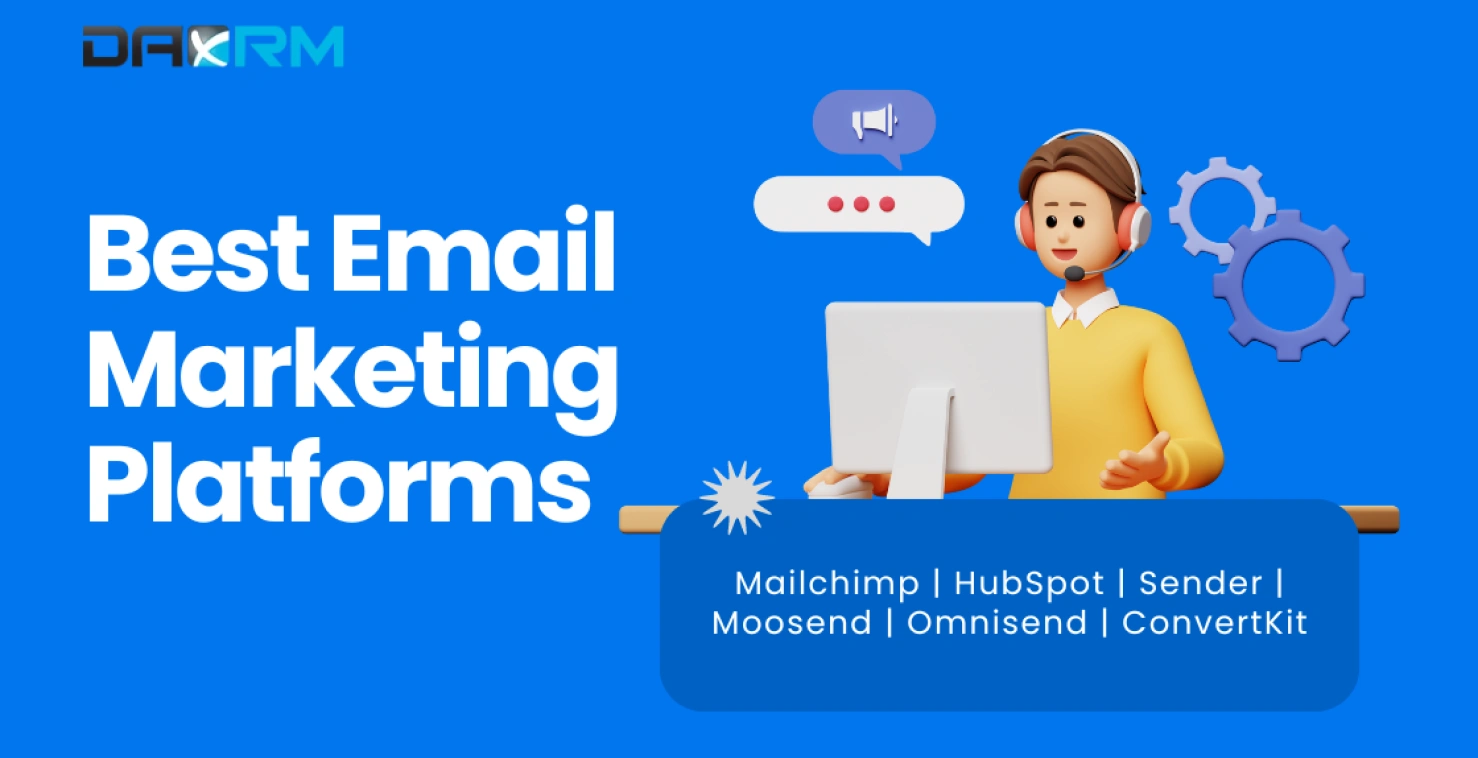
Best Email Tools for Managing Drip and Blast Campaigns
To curate this list of top email marketing tools, we evaluated each platform based on key criteria crucial for agencies and SEO strategists. These included:
- Ease of use: Intuitive interfaces and drag-and-drop editors for streamlined campaign creation.
- Features: Robust automation, personalization, segmentation, and analytics capabilities to drive targeted and effective campaigns.
- Integrations: Seamless connections with popular CRM, e-commerce, and marketing automation platforms to enhance workflow efficiency.
- Pricing: Flexible pricing plans catering to various budgets and list sizes, with transparent cost structures.
- Support: Responsive customer support and comprehensive documentation to assist users at every step.
We've done this legwork so you can easily find the best tool for your email marketing, no matter your product, service, or campaign type.
Let’s cut to the chase!
1. Mailchimp
Tried, Tested and Versatile
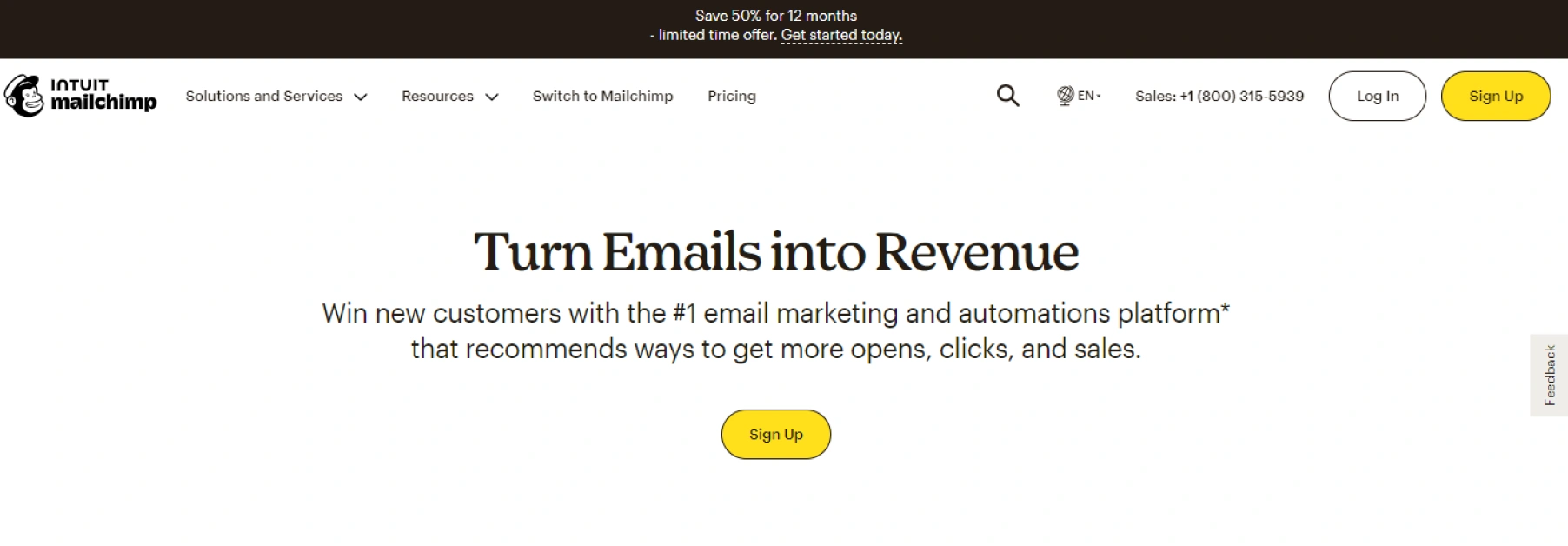
Overview
Mailchimp stands as a stalwart in email marketing, celebrated for its user-friendly interface and extensive feature set. Its drag-and-drop builder, coupled with a rich template library, empowers even beginners to craft visually appealing campaigns. Robust automation workflows allow for personalized communication at scale, while comprehensive analytics provide valuable insights into campaign performance.
Key Features
- Drag-and-drop email builder
- Extensive template library
- Automation workflows
- A/B testing
- Segmentation
- Landing pages
- Social media ad integration
- Comprehensive analytics
Pros
- User-friendly interface
- Wide range of features and integrations
- Robust automation capabilities
- Comprehensive analytics and reporting
Cons
- Pricing can escalate with list growth
- Advanced features may require a learning curve
- Limited support for free plan users
Cost
- Free plan: Mailchimp offers a free plan for up to 500 contacts, but you’re restricted to no more than 500 emails a day or 1,000 emails monthly.)
- Paid plans start at $10, but the price doubles after the first month.
Ideal For
Agencies and strategists seeking a versatile platform with a wide range of features and integrations.
2. HubSpot
The Inbound Lead Magnet
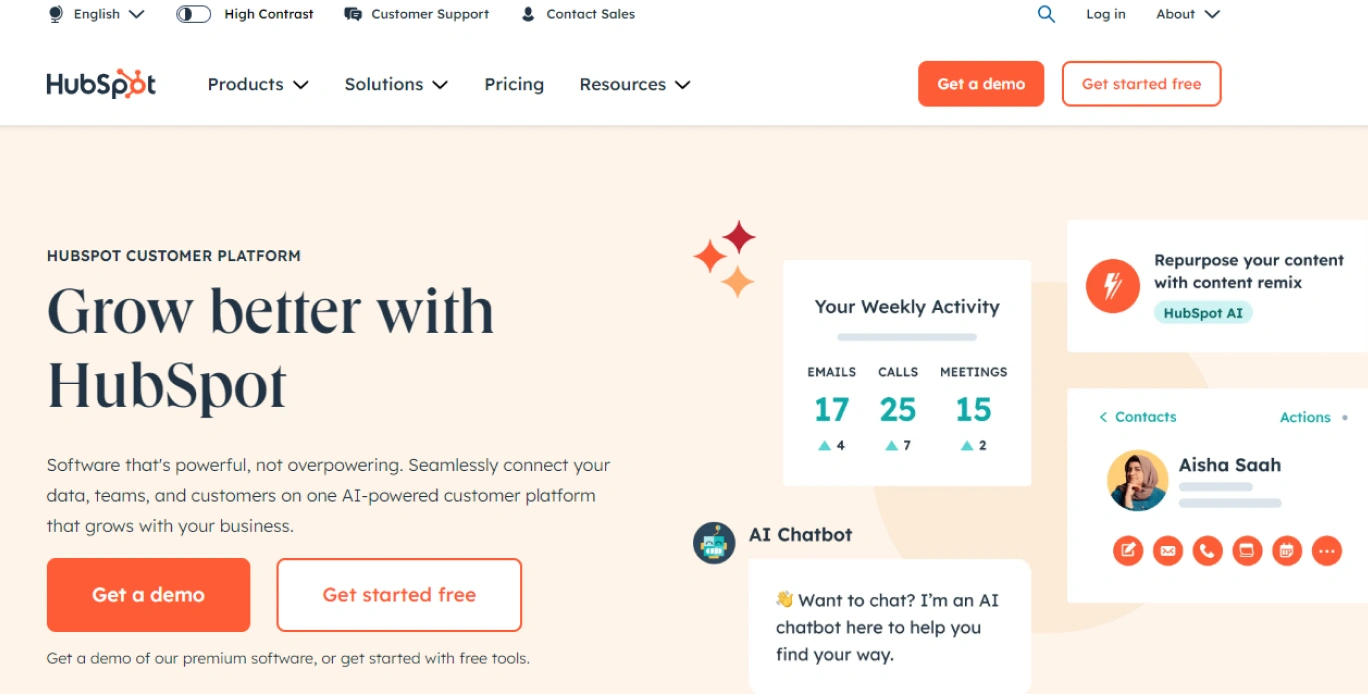
Overview
Of course, who hasn’t heard of HubSpot? But not many may know about its integrated email marketing tool that comes with its renowned CRM and marketing automation suite. A compelling choice for agencies focused on inbound strategies, HubSpot’s strength lies in lead nurturing, personalized content delivery, and comprehensive analytics. It’s ideal for established agencies and freelancers who want to build meaningful relationships and drive conversions.
Key Features
- Seamless CRM integration
- Powerful lead nurturing and scoring
- Personalized content delivery
- Smart content
- Dynamic forms
- Email tracking
- Social media publishing
- Comprehensive analytics
Pros
- Deep integration with HubSpot's ecosystem
- Powerful lead nurturing and scoring
- Personalized content based on user behavior
- Comprehensive analytics and campaign insights
Cons
- Higher price point compared to other tools
- Steep learning curve for mastering the full suite
- Can be overwhelming for users with simpler needs
Cost
- Free plan (limited features)
- Paid plans starting at $15/month per seat
Ideal For
Agencies and strategists focused on inbound marketing and lead generation strategies
3. Sender
The Budget-Friendly Contender
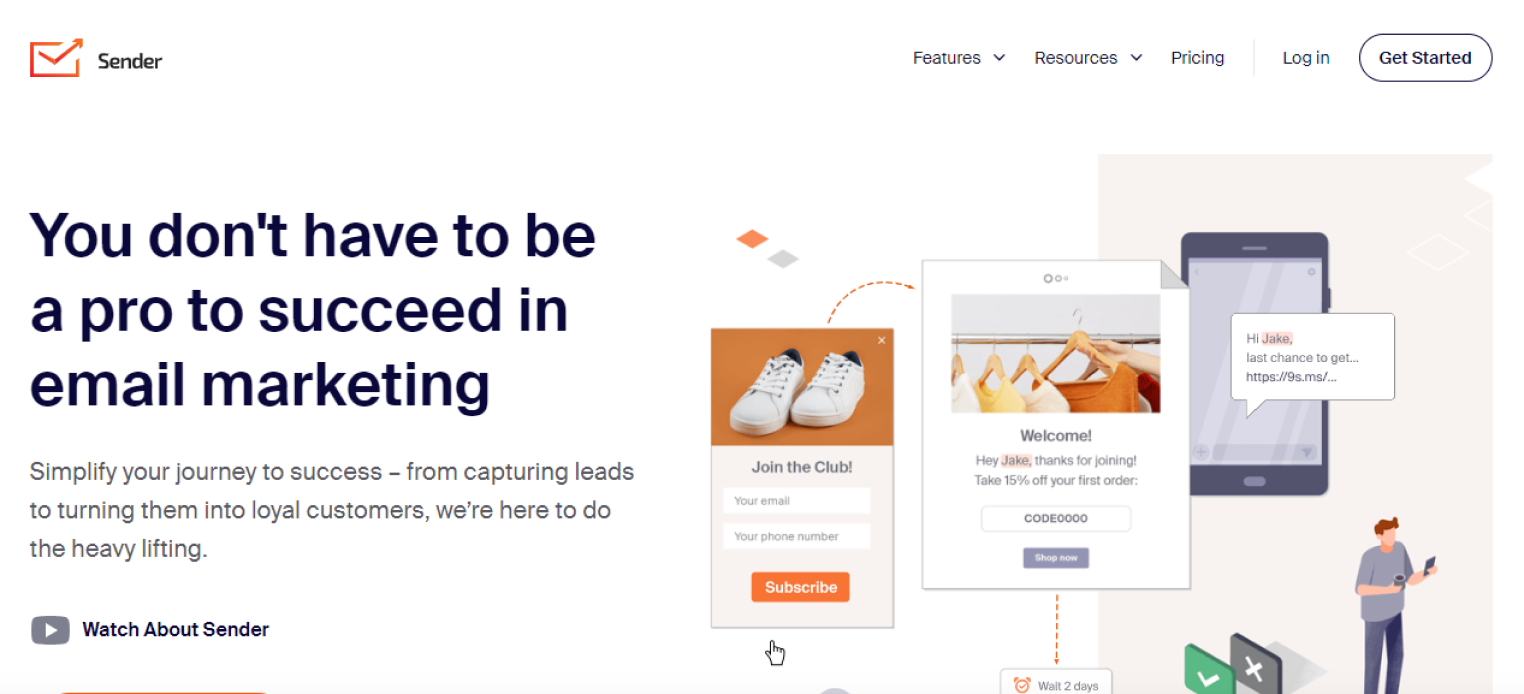
Overview
Need an affordable yet comprehensive email platform for your startup? Sender appeals to budget-conscious agencies and strategists with its affordable pricing plans, particularly for smaller contact lists. Its intuitive drag-and-drop builder and pre-designed templates simplify campaign creation, while basic automation and personalization features add a touch of sophistication.
Key Features
- Intuitive drag-and-drop email builder
- Pre-designed templates
- Basic automation and personalization
- Email automation
- Segmentation
- A/B testing
- Subscriber management
Pros
- Affordable pricing, especially for smaller lists
- Intuitive interface and easy-to-use builder
- Pre-designed templates and customizable elements
Cons
- Limited integrations compared to other platforms
- Fewer advanced features and automation capabilities
- Customer support can be slow to respond
Cost
- Free plan: (up to 2,500 subscribers and 15,000 emails/month
- Paid plans starting at $15.83/month
Ideal For
Agencies and strategists on a budget seeking a simple and cost-effective solution.
4. Moosend
The Automation Enabler
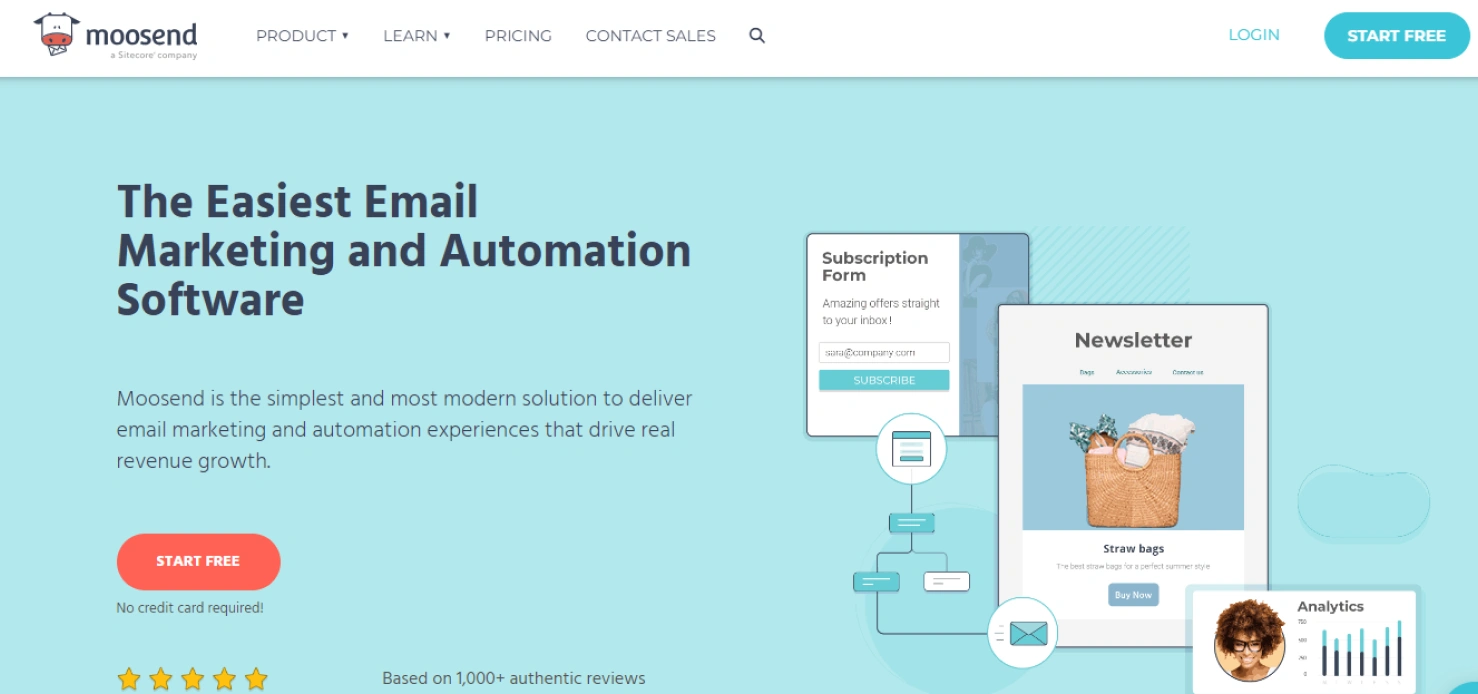
Overview
Moosend caters to agencies and strategists who prioritize advanced automation and personalization in their email marketing efforts. Its robust automation workflows and triggers allow for highly targeted and dynamic campaigns. While the interface might be less intuitive than some competitors, its powerful features make it a valuable asset for those seeking to create sophisticated email experiences.
Key Features
- Advanced automation workflows and triggers
- Personalized email content delivery
- Landing page and subscription form builder
- Drag-and-drop email editor
- A/B testing
- Email heatmaps
- List segmentation
- Detailed analytics and reporting dashboards
Pros
- Advanced automation and personalization capabilities
- Landing page and form builder included
- Detailed analytics and reporting
Cons
- Less intuitive interface compared to some competitors
- Limited third-party integrations
- Can be challenging for beginners to navigate
Cost
- Free 30-day trial
- Paid plans starting at $7/month (500 subscribers)
Ideal For
Agencies and strategists who need advanced automation and personalization capabilities.
5. Omnisend
The E-commerce Specialist
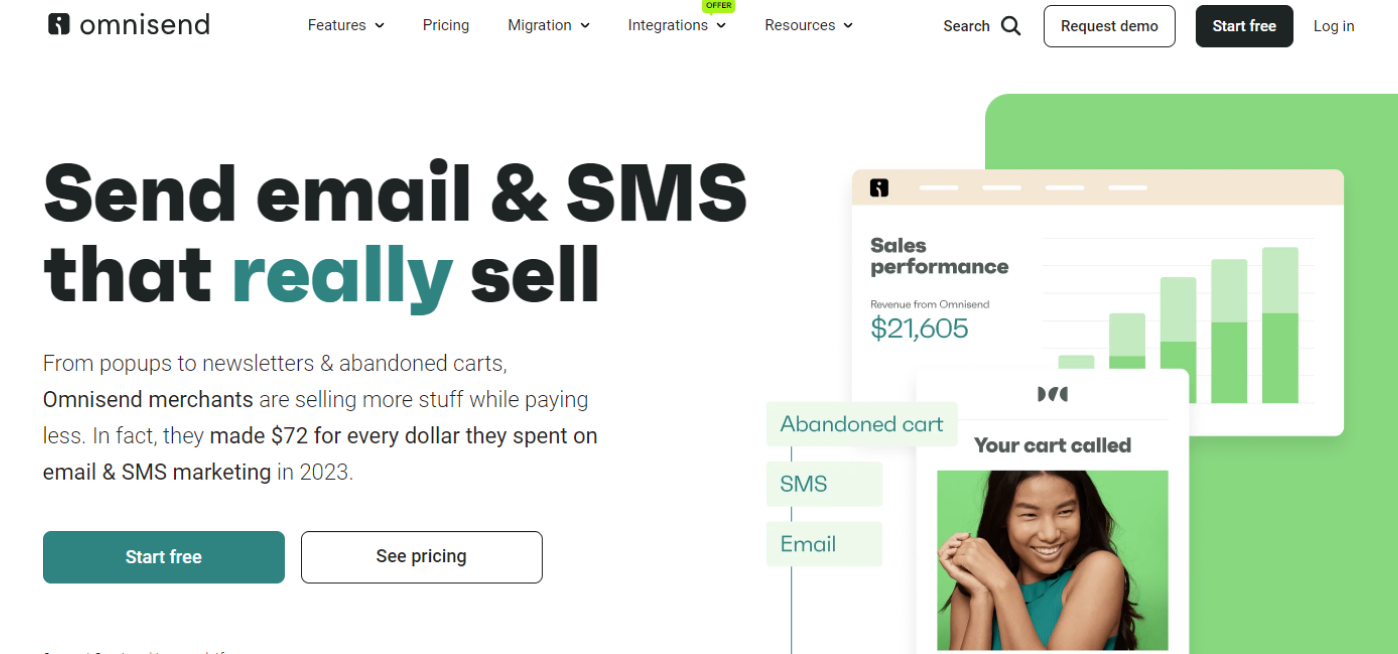
Overview
If your client is an ecommerce seller, Omnisend is a purpose-built email marketing platform designed for agencies and strategists like you. Its feature set includes abandoned cart recovery, product recommendations, and seamless integration with popular e-commerce platforms. Additionally, it offers SMS marketing and push notification capabilities, providing a comprehensive omnichannel marketing solution.
Key Features
- Tailored for e-commerce businesses
- Abandoned cart recovery
- Product recommendations
- Seamless e-commerce platform integrations
- SMS marketing and push notifications
- Customer segmentation
- Automated workflows
- Popups and forms
- Sales reporting
Pros
- Built-in features specifically for e-commerce
- Abandoned cart recovery and product recommendations
- Seamless integration with popular e-commerce platforms
- Omnichannel marketing with SMS and push notifications
Cons
- Limited functionality for non-e-commerce businesses
- Higher pricing tiers compared to some general email tools
- Can be complex for users without e-commerce experience
Cost
- Free plan (limited features)
- Paid plans starting at $16/month
Ideal For
Agencies and strategists working with e-commerce clients seeking targeted marketing solutions
6. ConvertKit
The Creator-Focused Platform
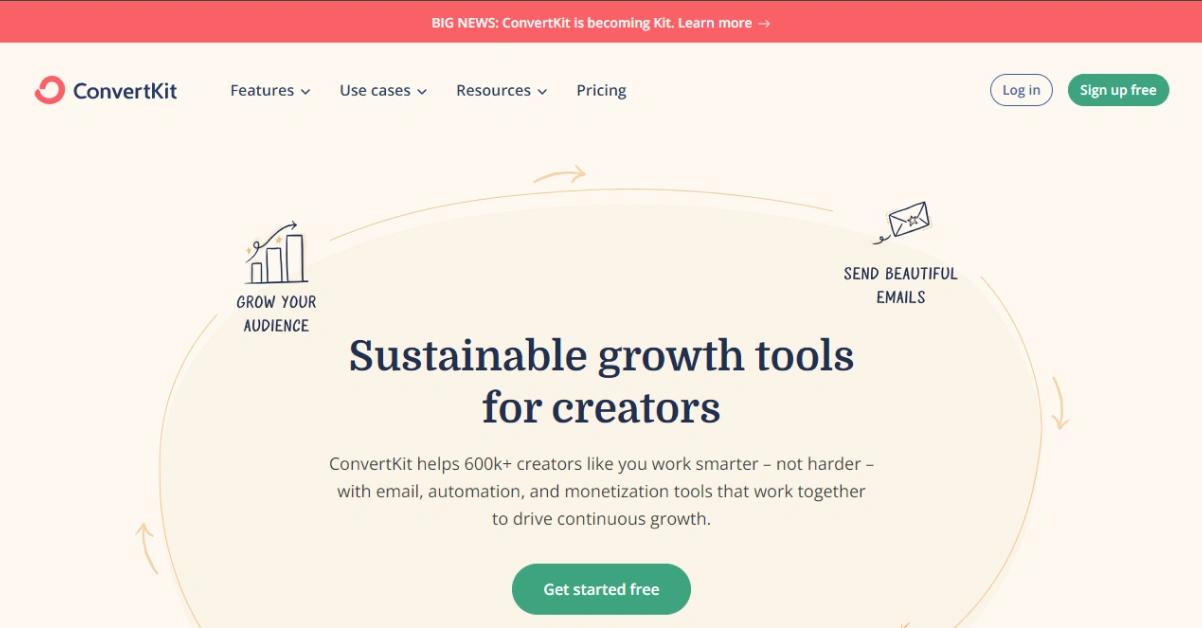
Overview
ConvertKit caters specifically to content creators, bloggers, and course creators, offering a simple interface and powerful automation tools tailored to their needs. Its landing page and form builder simplify lead capture, while audience tagging and segmentation enable targeted communication.
Key Features
- Simple and intuitive interface
- Landing pages and forms
- Powerful automation for creators
- Audience tagging and segmentation
- Visual automation builder
- Customizable forms
Pros
- Simple interface, easy to use
- Powerful automation for creators
- Landing pages and forms included
- Audience tagging and segmentation
Cons
- Limited design options compared to other platforms
- Fewer integrations
- Pricing based on subscribers
Cost
- Free plan (up to 1,000 subscribers)
- Paid plans starting at $25/month
Ideal For
ConvertKit is optimized for content creators, bloggers, and course creators.
Which Platform Is Best for Your Agency?
The tools we've explored have their own strengths and focus areas. From Mailchimp's versatility to Omnisend's e-commerce specialization, these platforms provide the core features necessary for successful email campaigns. However, the true power of email marketing lies not just in sending messages, but in understanding your audience and tailoring your communication to their needs. This is where a CRM like DAXRM becomes invaluable.
By integrating your email marketing efforts with a robust CRM, you gain access to a wealth of customer data and insights. You can track interactions, segment your audience based on behavior and preferences, and personalize your campaigns for maximum impact.


